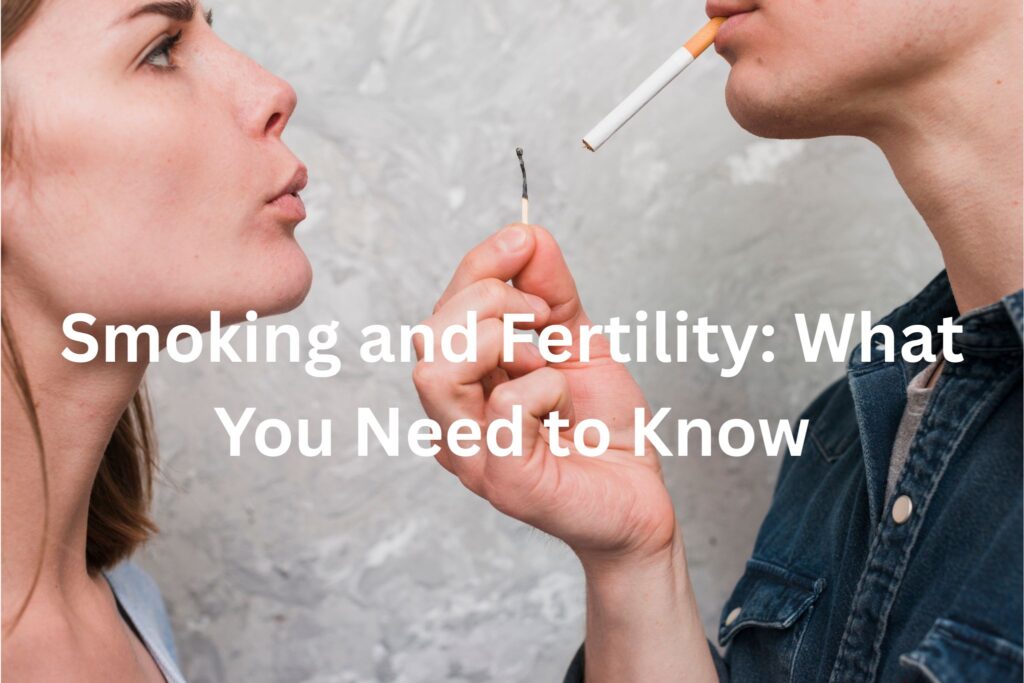
We’ve all heard that “smoking is injurious to health,” but did you know it’s equally harmful to your reproductive health? Both active and passive smoking can significantly affect fertility, pregnancy outcomes, and the success of fertility treatments. At Prashanti Fertility Centre, Doddakalsandra, Dr. Chandrika Kulkarni, a leading infertility specialist, educates couples on the dangers of smoking and guides them toward healthier choices on their path to parenthood.
The Link Between Smoking and Infertility
Research shows that smoking may be responsible for fertility issues in up to 13% of couples. A study revealed that women who smoke 10 or more cigarettes a day experience a significant decline in fertility. But even fewer cigarettes can still reduce your chances of conception.
Despite this, many women remain unaware. One survey among female hospital staff showed that less than 25% knew smoking could impact fertility or raise the risk of miscarriage. This highlights the need for more awareness and education, something we prioritize at Prashanti Fertility Centre.
How Smoking Affects Female Fertility
Smoking disrupts several key functions in the female reproductive system:
- Fallopian Tube Damage: Blockages can prevent the egg and sperm from meeting, increasing the risk of ectopic pregnancy.
- Cervical Issues: Smokers face a higher risk of cervical cancer.
- Ovarian Health: Smoking can damage developing eggs, decrease ovarian reserve, and cause premature ovarian aging. Women who smoke may enter menopause up to four years earlier.
- Miscarriage Risk: Damaged eggs, disrupted uterine lining, and impaired embryo implantation all contribute to a higher miscarriage rate.
Dr. Chandrika Kulkarni often sees patients facing these issues and emphasizes quitting smoking as a crucial first step in fertility treatment.
Impact of Smoking on Fertility Treatments
Smoking significantly lowers success rates of Assisted Reproductive Technology (ART), including IVF. Smokers:
- Take twice as long to conceive with ART.
- Are more likely to miscarry, even if conception occurs.
- Often need more medication, such as Clomid or other ovulation-inducing drugs, which increases treatment costs.
Our team at Prashanti Fertility Centre ensures that every patient receives counseling about smoking cessation as part of a holistic fertility plan.
Smoking During Pregnancy
If you do conceive, smoking during pregnancy poses additional risks:
- Miscarriage
- Low birth weight
- Premature delivery
- Birth defects, including:
- Heart defects
- Limb abnormalities
- Clubfoot
- Cleft lip or palate
- Skull and facial deformities
- Undescended testes
- Gastrointestinal malformations
A study even showed that babies born to smokers are more likely to have two or more congenital defects.
Quitting Smoking: It’s Never Too Late
Even if smoking has already impacted your fertility, there’s hope. Studies show that fertility can improve within one year of quitting. If both partners smoke, quitting together increases success and protects your future baby from second-hand smoke exposure.
At Prashanti Fertility Centre, Doddakalsandra, we offer support and resources for couples to quit smoking and improve their chances of a healthy conception and pregnancy. Dr. Chandrika Kulkarni and her expert team provide compassionate, science-backed care to guide you through every stage of your fertility journey.
Conclusion
Smoking is a preventable cause of infertility and poor pregnancy outcomes. If you’re trying to conceive, quitting smoking is one of the best decisions you can make for your reproductive health and your baby’s future.
Take the first step toward a healthier, smoke-free journey to parenthood.
Book a consultation with Dr. Chandrika Kulkarni at Prashanti Fertility Centre, Doddakalsandra today.

